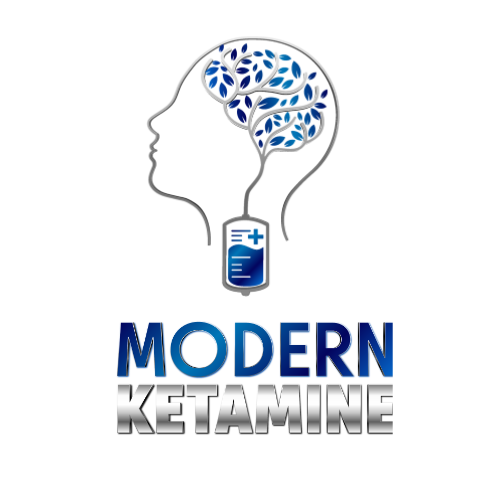Evidence of the Benefits from Ketamine Infusion Therapy
Recent data estimates that over 264 million people worldwide suffer from this mental health disorder, making it one of the leading causes of disability worldwide.
Ketamine is an anesthetic drug commonly used in surgical operations and as a pain reliever. But in the last few years, studies have suggested its anesthetic properties at low doses may be used to treat depression. Ketamine infusion therapy is a treatment that involves the administration of low-dose ketamine intravenously, typically over a 40-minute period. The therapy differs from traditional antidepressants in that it works much faster and may produce results in just a few hours compared to weeks with standard treatments.
Evidence of Benefits from Ketamine Infusion Therapy
In recent years, a growing body of evidence has shown the potential benefits of ketamine infusion therapy in treating depression. Studies have suggested that ketamine has neuroprotective effects on the brain and can repair damaged circuits in the brain.
The American Psychiatric Association (APA) Task Force Report on ketamine suggested that ketamine is highly effective in treating depression and suicidal ideation, particularly in patients who have not responded to traditional antidepressants. Studies have shown that ketamine infusion therapy can produce an antidepressant effect in as little as 1-2 hours, with this effect lasting for several days after treatment.
The Journal of Psychiatric Practice reported that ketamine infusion therapy produced significant improvement in 67% of patients with treatment-resistant depression and was well-tolerated in a variety of patient populations, including adolescents, adults, and older adults.
A double-blind, placebo-controlled study published in the Journal of Clinical Psychiatry indicated that ketamine was effective in treating depression in patients with bipolar disorder with little to no side effects. The study found that after the first infusion, 60% of participants responded positively to the treatment and that 45% of participants reported improvements in their symptoms after thirty days.
A study by Harvard Medical School found that ketamine infusion therapy reduced suicidal thoughts in patients with depression. The study found that after 24-hours of treatment, patients reported a significant and rapid reduction in suicidal thoughts.
A recent randomized, double-blind, placebo-controlled trials of ketamine in the rapid treatment of major depressive episodes found that ketamine infusion therapy had an NNT (number needed to treat) of 2, meaning that for every 2 patients treated with ketamine, one achieved remission of depression symptoms. In comparison, traditional antidepressant medications have an NNT of 6 (1 in 6 achieving decline in symptoms).
References/Citations: Gerard Sanacora, MD, PhD; Mark A. Frye, MD; William McDonald, MD; Sanjay J. Mathew, MD; Mason S. Turner, MD; Alan F. Schatzberg, MD; Paul Summergrad, MD; Charles B. Nemeroff, MD, PhD; for the American Psychiatric Association (APA) Council of Research Task Force on Novel Biomarkers and Treatments Wilkinson ST, Sanacora G. Considerations on the off-label use of ketamine as a treatment for mood disorders. JAMA. 2017;318:793–794.
Dai D, Miller C, Valdivia V, Boyle B, Bolton P, Li S, Seiner S, Meisner R. Neurocognitive effects of repeated ketamine infusion treatments in patients with treatment resistant depression: a retrospective chart review. BMC Psychiatry. 2022 Feb 22;22(1):140. doi: 10.1186/s12888-022-03789-3. PMID: 35193541; PMCID: PMC8862573.
Jennifer B. Dwyer, M.D. ,Ph.D. , Angeli Landeros-Weisenberger ,M.D., Jessica A. Johnson ,R.N.,M.S.N., Amalia Londono Tobon ,M.D., José M. Flores ,M.D.,Ph.D., Madeeha Nasir,M.B.B.S., M.S., Kevin Couloures ,D.O.,M.P.H., Gerard Sanacora ,M.D.,Ph.D., Michael H. Bloch ,M.D.,M.S. https://doi.org/10.1176/appi.ajp.2020.20010018
Fava, M., Freeman, M.P., Flynn, M. et al. Double-blind, placebo-controlled, dose-ranging trial of intravenous ketamine as adjunctive therapy in treatment-resistant depression (TRD). Mol Psychiatry 25, 1592–1603 (2020). https://doi.org/10.1038/s41380-018-0256-5
McGirr A, Berlim MT, Bond DJ, Fleck MP, Yatham LN, Lam RW. A systematic review and meta-analysis of randomized, double-blind, placebo-controlled trials of ketamine in the rapid treatment of major depressive episodes. Psychol Med. 2015 Mar;45(4):693-704. doi: 10.1017/S0033291714001603. Epub 2014 Jul 10. PMID: 25010396.

